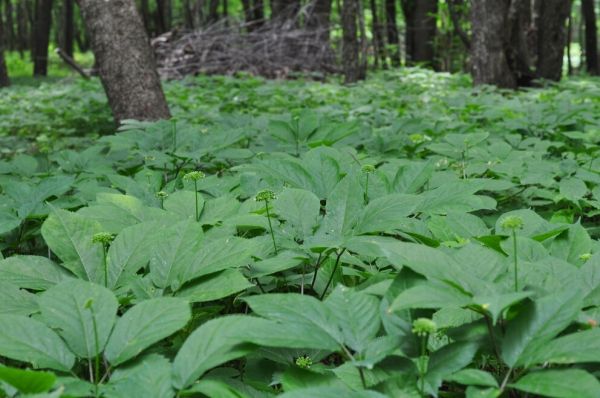There is good and bad news about ginseng collection and production in Pennsylvania, and likely much of Appalachia, according to a new study conducted by Penn State researchers.
On the positive side, it seems that many collectors of the endangered forest herb valued for its medicinal qualities are planting seeds in forests, conserving and supplementing remaining truly wild populations. But on the negative side of the ledger, often they are planting seeds acquired in online purchases from places such as Wisconsin, produced in shaded field operations with inputs of fertilizer. That germplasm threatens to weaken the gene pool of the plant, which is well adapted to thrive in Appalachian forests.
Forest farming of ginseng is growing, and this study was designed to examine trends in the growth of the secretive ginseng industry in Pennsylvania and how best to support and track ginseng forest farming, noted Eric Burkhart, associate teaching professor of ecosystem science and management in the College of Agricultural Sciences, who led the research.
Read more at: Penn State
A ginseng "garden" in a private forest plot is shown, growing in Armstrong County, Pennsylvania. Forest farming of the endangered forest herb, valued for its medicinal qualities, is becoming much more common. (Photo Credit: Dennis Colwell


